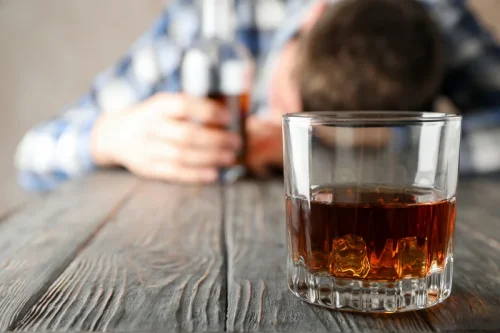
It is an indication that one is suffering from alcohol withdrawal symptoms, and their body is increasingly dependent on alcohol. This typically happens with binge drinkers and people who realize they have a drinking problem and attempt to fix it. If you’d like information on addiction treatment, visit our alcohol addiction page.
Residential Addiction Treatment
He promptly replied that it’s quite common as it’s an aftereffect of alcohol. However, this is only an approximation, and the odor can linger long after you’ve drank. Detoxification allows an individual to safely detox all the alcohol out of their body in a controlled environment.
Common Symptoms of Alcohol-Related Night Sweats

However, hot flashes and sweating can also affect other people, since alcohol can affect the endocrine system. This system makes and secretes hormones that can contribute to these symptoms. Other factors, such as menopause or medication use, commonly cause hot flashes and night sweats. People may not realize that because of this, they are at risk of hypothermia in cold weather. During hot weather, they may begin to experience nausea and dizziness with dehydration in addition to sweating.

Prevention and Long-Term Management
This is due to a genetic mutation that prevents their body from producing enzymes that break down the toxins in alcohol. In addition, they may see facial redness, hives, worsening asthma, runny or stuffy nose, low blood pressure and other types of discomfort such as nausea, vomiting and diarrhea. Alcohol dependence in and of itself does not constitute addiction, but dependence is often a sign of addiction.
Common Symptoms of Withdrawal Include:
It is crucial to focus one’s mind on the prize and seek out a medical detox center for alcohol addiction to help you overcome these challenges. Gaining professional help from an alcohol detox center in Dallas-Fort Worth is the best way forward. Professionals can alleviate withdrawal symptoms safely and provide treatment to improve your comfort throughout the withdrawal phase.
- If you are wondering how to stop sweating when drinking alcohol, the best treatment is to minimize drinking.
- For example, some people enter treatment centers while others join support groups to gain the tools necessary to cope with and manage their alcoholism.
- He promptly replied that it’s quite common as it’s an aftereffect of alcohol.
- The best way to reduce both of these skin reactions is to reduce or eliminate alcohol consumption entirely.

However unpleasant, most hangovers go away on their own, though they can last up to 24 hours. If you choose to drink alcohol, doing so responsibly does alcohol make you sweat can help you stay away from hangovers. Generally, the more alcohol you drink, the more likely you are to have a hangover the next day.
Alcohol and Profuse Sweating
By adopting these strategies, you can significantly reduce the impact of night sweats and improve your overall sleep quality and health. If night sweats persist or are accompanied by other symptoms, it’s important to seek professional medical advice to address potential underlying health issues. It’s crucial for individuals experiencing alcohol withdrawal to seek professional help, especially when symptoms are severe. Treatment programs and support groups can offer the necessary resources and community understanding to navigate the detoxification process and beyond toward recovery. Alcohol’s ability to alter the body’s heat regulation mechanisms significantly contributes to the occurrence of night sweats.
- Without diagnosis and treatment, it could lead to liver complications.
- If you frequently experience day or nighttime sweating after drinking, it could be an important sign that you’ve developed an unhealthy relationship with alcohol.
- Luckily, today countless programs facilitate people combatting alcohol and substance use addictions with holistic and medical treatments and therapy sessions.
- The feeling of warmth may actually mask a drop in body temperature, and sweating makes you more likely to catch a chill.
- Under normal circumstances, our livers can metabolize ethanol and acetaldehyde well.
- It is essential to understand that each body has a different response to alcohol withdrawal and dependency.
- If you are experiencing night sweats from acute intoxication with alcohol or alcohol intolerance, the effects will probably only last while alcohol is still active in your bloodstream.
- For example, this trait is more common in those with East Asian descent, due to a genetically determined deficiency of an enzyme which helps the liver break down alcohol.
- If you have been experiencing night sweats as a result of alcohol intolerance, the best course of action is to cut back on alcohol consumption.
- If you experience night sweats that are not due to alcohol consumption, it is essential to seek medical attention.
- They can help you determine if there is a problem and assist you in finding healthcare treatment programs.
It is okay to enjoy a drink or two every once in a while without any negative effects. However, pay attention not to indulge in alcohol drinking as it affects the body and mind in many ways. One of the common side effects of alcohol drinking is sweating or perspiring, https://ecosoberhouse.com/ a physiologic process where sweat glands in the skin produce fluid. More serious consequences include liver damage, brain damage and even cancer. If you are wondering how to stop sweating when drinking alcohol, the best treatment is to minimize drinking.
The more alcohol you drink daily, the more likely you are to have night sweats. Heavy drinkers also have much more intense symptoms than their light-drinking counterparts. Night sweats can be a side effect of alcohol consumption, alcohol intolerance, or alcohol withdrawal, largely because alcohol affects the central nervous system.
The main symptom of night sweats is severe sweating that starts at night with no heat-related cause immediately identified. Fever can also occur during alcohol detox, although this is a more serious side effect that can be a sign of a life-threatening form of withdrawal known as delirium tremens (DTs). The first step in preventing alcohol-related night sweats is acknowledging that alcohol consumption is the underlying cause. This can be challenging, as it requires an individual to recognize and accept their drinking patterns may be problematic or harmful. While it is rare for an alcohol intolerance to be fatal, symptoms can be very unpleasant.
